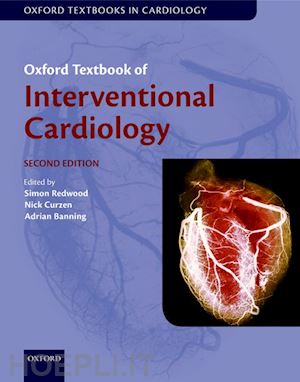Simon Redwood trained in cardiology at The Royal London Hospital, The Royal Free Hospital and St. George's Hospital, London. Interventional training was obtained at The Washington Cardiology Center, Washington, DC and Guy's and St. Thomas' Hospitals. He obtained Fellowship of the American College of Cardiology in 2001 and became a Fellow of the Royal College of Physicians in 2003 and Fellow of the Society of Angiography and Interventions in 2004. Dr Redwood is Reader/ Consultant Interventional Cardiologist and Director of the Cardiac Catheter labs at St. Thomas', one of the highest volume catheter lab suites in the UK. He is also a Council Member and Treasurer of the British Cardiovascular Intervention Society. He is trained in all aspects of adult interventional cardiology including intravascular ultrasound, physiological lesion assessment using pressure-sensor tipped wires, stent implantation, rotational atherectomy, and laser angioplasty including the laserwire for chronic total occlusions. Nick Curzen is a consultant cardiologist with a special interest in coronary intervention at Southampton University Hospitals NHS Trust and Honorary Senior Lecturer at Southampton University Medical School. He qualified from Southampton with Honours in 1987 and obtained MRCP in 1990. In 1996 he was awarded his PhD from Imperial College, London, for a thesis involving vascular pharmacology and molecular biology. His clinical training was at Southampton University, Royal Bournemouth, Royal Brompton, London Chest and St Bartholomews hospitals. He became a consultant interventional cardiologist at Manchester Royal Infirmary in 1999 and moved to Wessex Cardiothoracic Centre, Southampton in January 2004. Adrian Banning is consultant cardiologist at the John Radcliffe University Hospital, Oxford, and currently holds the post of President of the British Cardiovascular Intervention Society (BCIS). He was the Clinical Lead for cardiac medicine, and subsequently the Divisional Director for Cardiology, Cardiothoracic, and Vascular Surgery for the John Radcliffe, and has been the leading investigator for multiple practice-changing trials, including Syntax, Excel, and Horizons. He qualified from St George's Hospital, London in 1987, and obtained Fellowship of the European Society of Cardiology in 2001, followed by Fellowship of the Royal College of Physicians in 2003. He was Assistant Editor to the journal Heart for six years, and has published over 190 peer reviewed papers.











